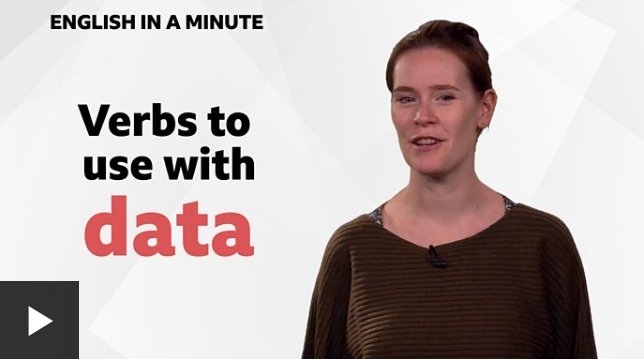Introduction
Data is facts and statistics that can be analysed. There are some words that we often use together. These are called collocations. Learn some of the verbs that we often use with the noun ‘data’ with Beth.
Common collocations with ‘data’
collect data
gather data
If you collect or gather data, you search for the data yourself.
- My company are collecting data on mental health of teenagers. They’ve put out a survey online.
enter data
If you enter data, you put your data into a system, like a computer programme or spreadsheet.
- Could you enter that data into the system, please?
interpret data
If you interpret data, you analyse it to see what it means.
- Let’s interpret the data using a bar chart. That way we can see patterns and analyse the results clearly.
present data
If you present data, you show the data to others.
- Can you present this data in the team meeting on Friday? It would be interesting to see what everyone thinks.
TRANSCRIPT
Note: This is not a word-for-word transcript.
Beth
Let’s talk about verbs we use with ‘data’.
If you collect or gather data, you search for it yourself. For example, this could be by asking people questions or looking at databases online.
I’ve been gathering data on breakfast choices by asking people what they have for breakfast.
When you have your answers or figures, you might enter that data into a computer system.
I’ve been entering data into this spreadsheet all day.
Then it’s time to interpret the data. This means you analyse it to see what it means.
Well, look at that. It looks like most people in the BBC have cornflakes for breakfast.
You might then present the data to colleagues or a company that want the information.
Sorry, I can’t come for brunch. I’m presenting my breakfast data to the cereal company.
I’m going to go eat some breakfast, so see you next time!
